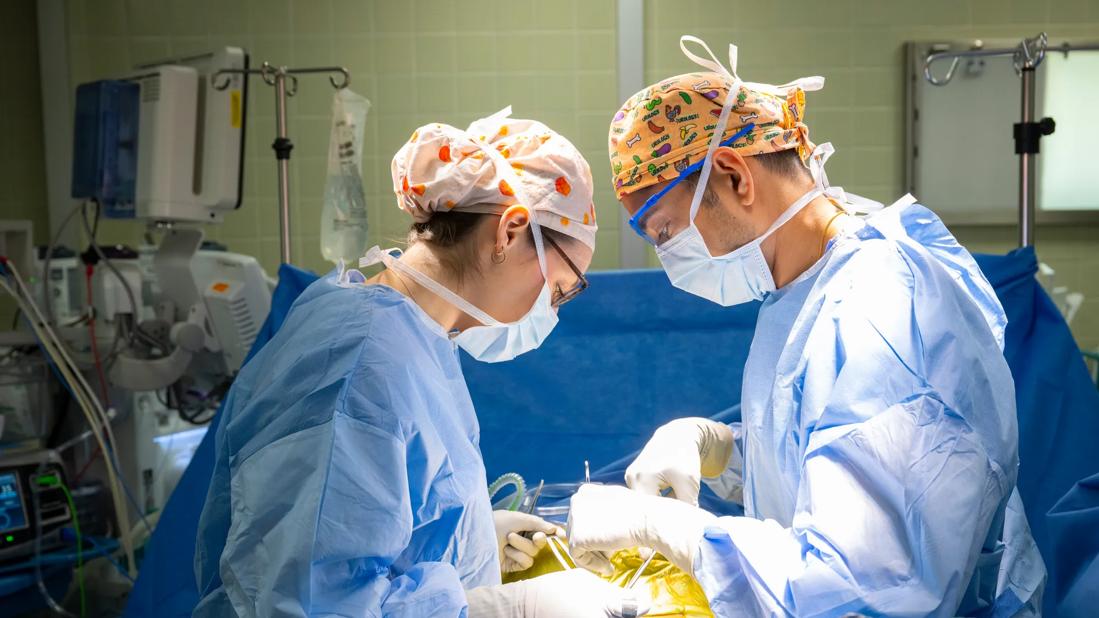Simulation, research and other features provide unique education experiences

“Interview season” within residency and fellowship programs was a little different this year as program directors moved applicant interviews into virtual spaces amid the COVID-19 pandemic. These challenges aside, Cleveland Clinic’s urology residency and nephrology fellowship directors say that both programs continue to offer the same high-volume clinical and surgical experiences, while incorporating new and innovative features.
Advertisement
Cleveland Clinic is a non-profit academic medical center. Advertising on our site helps support our mission. We do not endorse non-Cleveland Clinic products or services. Policy
Steven Campbell, MD, PhD, Director of the Urology Residency Program at Cleveland Clinic, remarks that the program has always been surgically robust, but recent focus on minimally invasive and robot-assisted techniques has created a unique surgical experience for trainees.
“It’s a surgery-heavy program,” he says. “We offer weekly surgical skills and simulation training, where junior residents can practice various open, laparoscopic and robotic techniques. On average, residents spend about one day in clinic and the rest of the time in the operating room.”
Cleveland Clinic urologists have pioneered surgical techniques, such as single-port robot-assisted radical and simple prostatectomies and partial nephrectomies, an approach that enables a smaller incision, minimizing the operative site. This ultimately results in less post-operative pain and a more efficient discharge-to-home time — sometimes on the same day.
A fertile research program also has been a central tenet of training. During their fourth year of residency, trainees have a protected year of research, when they are not expected to cover clinical or on-call responsibilities and can devote their time fully to a faculty-mentored research program.
Current research residents are investigating genetic sequencing of bladder cancer in various subpopulations, electrical stimulation of the pudendal nerve in the treatment of stress urinary incontinence, safety and feasibility of a catheter-free ambulatory cystometry device, and the utility of remote patient-monitoring devices in cystectomy patients to identify any challenges in their recovery (such as dehydration) and facilitate early intervention. A formal curriculum for trial design and statistics also has been added to complement the research experience.
Advertisement
Cleveland Clinic’s Nephrology and Hypertension Fellowship Program is known for its robust academic, clinical and multispecialty training, offering trainees a unique learning experience while caring for a patient population from around the globe and within the local community.
The patient volume, spectrum of disease pathology and commitment to finding new discoveries enable trainees to be involved in large-scale, federally funded trials alongside experienced faculty mentors. For the first time in the history of the program, the NIH has awarded a T32 grant to a second-year nephrology fellow to prepare for a career in research.
“Our fellowship program integrates traditional and innovative learning models that support any trainee’s learning style,” remarks Jonathan Taliercio, DO, Director of the Nephrology and Hypertension Fellowship Program.
The 2019-2020 academic year saw expansion of the number of fellowship positions, the launch of a new in-house night float system (one of only a few nephrology programs in the U.S. to take this approach), the addition of an interventional nephrology experience, and a new clinical and research partnership with the Louis Stokes Cleveland VA Medical Center.
The culture of curiosity, innovation and teamwork within the department has led to a number of unique training initiatives, including:
Advertisement
Despite the residency and fellowship programs’ nontraditional format this year, leadership is confident that the enduring qualities of Cleveland Clinic’s urology and nephrology training will continue to attract the best talent from around the world, with the ultimate goal of training the next generation of physician leaders to provide the best possible care to patients.
Advertisement
Advertisement

Pediatric urologists lead quality improvement initiative, author systemwide guideline

Fixed-dose single-pill combinations and future therapies

Reproductive urologists publish a contemporary review to guide practice

Two recent cases show favorable pain and cosmesis outcomes

Meta-analysis assesses outcomes in adolescent age vs. mid-adulthood

Proteinuria reduction remains the most important treatment target.

IgA nephropathy is a relatively common autoimmune glomerular disease that can be diagnosed only by biopsy

Oncologic and functional outcomes are promising, but selection is key